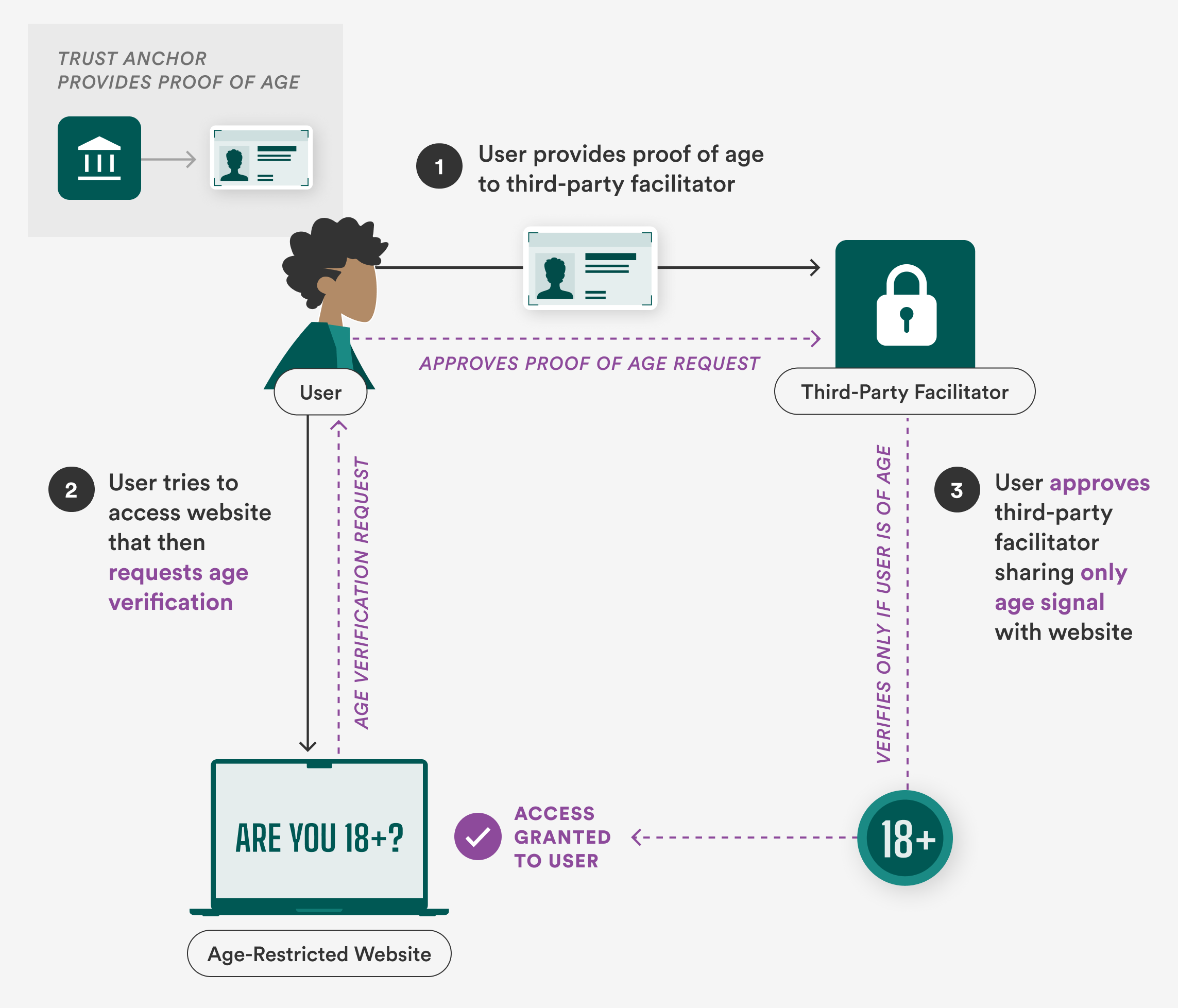Context:
The European Commission is developing a privacy-focused age verification app to prevent children from accessing harmful online content—such as pornography, cyberbullying platforms, and addictive social media features.
- This app is being designed under the Digital Services Act (DSA) and is compatible with the upcoming European Digital Identity Wallets (eID). Countries like France, Italy, Greece, Denmark, and Spain are among the first to test national versions.
About the Age verification App:
The age verification app will let users prove they are over 18 without revealing personal information like their name, exact age, or browsing history.
- It will use zero-knowledge proof technology to ensure that no one—not even the platform or government—can see or track what content an individual user accesses.
- The app's technical specifications and source code are open and public, according to the Commission.

The Need for Online Safety in India:
India has seen a significant increase in internet users, with a large portion being children and teenagers.
- The lack of robust online safety measures exposes them to various risks, including cyber bullying, exposure to harmful content, and unwanted contact from strangers.
- The Indian government has taken steps to regulate online content, but more needs to be done to ensure a safe online environment for children.
Challenges of Implementing Age Verification in India:
· Privacy Concerns: The collection and storage of personal data for age verification purposes raise concerns about privacy and data protection. India's existing data protection laws and regulations may need to be strengthened to address these concerns.
· Security Risks: The risk of data breaches and unauthorized access to sensitive personal information is a significant concern. Ensuring the security of age verification systems will be crucial to preventing such incidents.
· Effectiveness: The effectiveness of age verification systems in preventing children from accessing harmful content is still a topic of debate. Critics argue that determined individuals may find ways to circumvent these systems.
Conclusion:
The European Commission's age verification plan aims to protect children online while balancing adult privacy. However, critics argue that the plan may compromise adult users' privacy and security. The outcome of this debate will have significant implications for online safety and privacy in the EU






